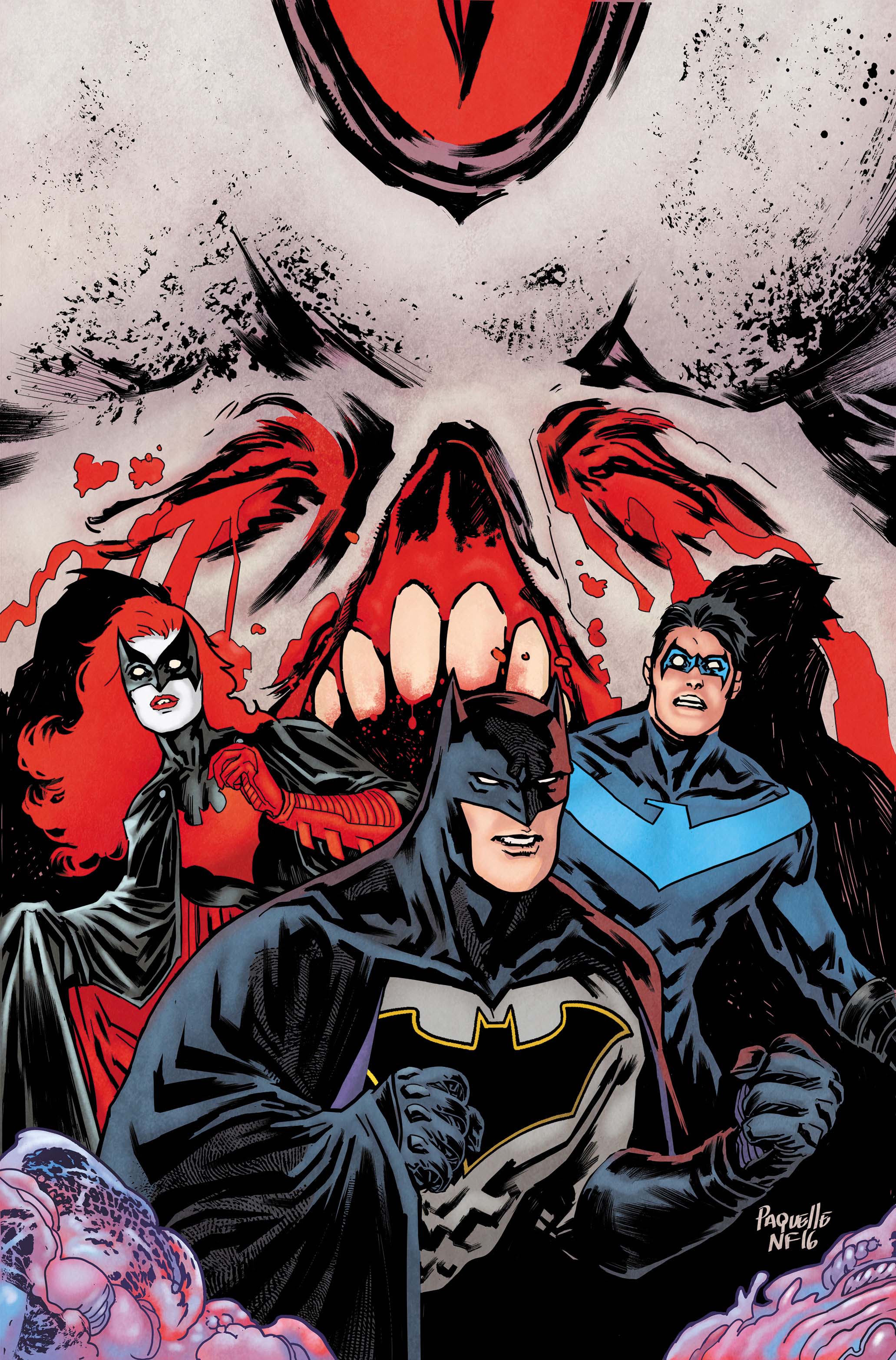The Spandex Retrospective: Batman (1989)
1989's 'Batman' clearly didn't invent superhero films but for the next decade it might have well have. A cultural and financial phenomenon its box-office crushing success slapped Batman's yellow and black escutcheon on the t-shirts and velcro wallets of seemingly every man in America and after long last gave the general comic illiterate public an image of the caped crusader that wasn't Adam West. The early 90's would be spent trying to duplicate Batman's success, with studios swinging bottles haphazardly at lighting with expensive films like 'The Shadow' and 'Dick Tracy', thinking the magic lay somewhere hidden between a big name on the poster and an art-deco aesthetic. 
However, all of that doesn't actually answer whether it was any good. 'Batman', despite being one of the biggest pop landmarks in film since 'Star Wars', seems to be more of a catalyst for subsequent comic-book media than genuinely memorable as a motion picture. There's no “can you read my mind?” quotability and many might remember it most vividly for the infamous Prince musical numbers. Has time been kind?
It's always interesting to visit the pre-'Planet of the Apes' Tim Burton because you immediately recognize what a special filmmaker he was back then. Despite “Batman”s tortured development his visual style and influences shone thru dramatically. There are clear visual motifs lifted from Burton's beloved silent films and in his canted angles and starkly noirish lighting you often feel that 'Batman' is a black and white film that happened to be shot in color.
It's also a distinctly fantasy-based Batman film, existing in a hybrid of the late-1980's and some stereotyped 1940's dream world where a man was naked outside without his hat and where newspaper offices were mahogany and leather instead of linoleum and pale florescents. This world feels more natural to Batman than the modern 80's clothing that sneaks in alongside it, from Kim Basinger's single braid to Micheal Keaton's blue jeans and turtlenecks.
Beyond the wincingly 80's fashion the film also dates itself with its plot. Like the post-9-11 saturated Nolan trilogy, 'Batman' took its threats from the social fears of the day; unsafe commercial products, blind consumerism. If one wanted to read into things a little too deeply they might even draw a line between Joker's desecration of the classical art museum with Madonna's pop blasphemy.
While the performances of Heath Ledger's Joker and Jack Nicholson's couldn't seem more different, the central similarity is that they both are presented as artists. Nolan's Joker is an identityless culture jamming performance artist; like a murderous Banksy, while Nicholson's Joker describes himself as “the first fully functioning homicidal artist”. They both reflect the fears of the society around them, exaggerating and flaunting their freedom from them. It took until Nolan for this idea to be completely realized however, as 'Batman's Joker is muddled.
Like so many comic-book movie villains his motivations are confused by probable rewrites. Depicting Joker's origin story we meet Jack Napier as an egotistical scheming mobster but later is through exposition revealed to have been some sort of secret genius with chemicals and art, pre-Jokerization. This is later followed by the ridiculous coincidence that as a young thug he happened to be Thomas and Martha Wayne's murderer, a revelation that plays almost as an afterthought. Nicholson seemed to have fun with the role but he doesn't seem to know what to do with Joker, more often being goofy and obnoxious than a few memorable glimpses of unsettling insanity. Interestingly enough, the better crazy person in the film is Bruce Wayne himself.
Micheal Keaton's Bruce Wayne isn't the handsome brooder here, with the fawning starlets and superficial charm. He's nebbish and awkward, in a quiet dorky way. At his big fundraiser party he drinks alone, apparently separate enough from his guests that Basinger's Vicky Vale can't figure out who her host is. He prefers to view people from the outside, lying to Vale about his real name at the party and later eavesdrops on a conversation with her about himself, expertly unintrusive. He doesn't collect information on Commissioner Gordon's doings by mingling at the party but through hidden cameras silently collecting data all over his massive lonely house. There's an almost serial killer-esque voyeurism when we see Bruce's cameras recording Vale and her co-worker from behind a decroative mirror. Removing our knowledge of Bruce's secret his habits have very different overtones.
With these personal qualities it's difficult to see where the relationship between Vale and Wayne originates besides a curiosity of Vale's in his eccentricity. A real chemistry never develops between the characters, partially due to Basinger's limited talents as an actress but also a result of Wayne's emotional self-removal. Tim Burton, ever the awkward loner himself, added Bruce to his cinematic canon of similar awkward loners; not dashing but damaged, a hero with arrested development. “Why won't you let me in?” pleads Vale, to which Bruce flatly responds, “You got in”. It's not a passionate pronouncement, it's almost like surprise.
On top of all of that Burton's Batman is almost an alien entity. In the opening scene Burton displays Batman more closely to the character's original vampiric inspiration, floating like a specter and unfolding his wing-like cape in a monstrous display. This Batman wasn't afraid of killing, one of the only Batmen with a body count, even firing machine guns from the Batwing at Joker's thugs a la Robocop. Burton put Batman back in the shadows in more ways than just making the costume black. When Vale enters the Batcave for the first time the scene plays like Universal Horror with a creature hiding his visage from the beauty in the dark.
We only see the ferocity that is Batman in Bruce once. During one of the strangest scenes in the film Joker ambushes Vale and Wayne in her apartment. Bruce stalls for time so he can reach the poker by the fireplace and when he has it he explodes into snarling bared-teeth Micheal Keaton shouting: “You wanna get nuts? Let's get nuts!”. During an early scene at dinner Vale comments that Wayne Mansion “doesn't seem like you”. He meaningfully responds “Some of it is very much me. Some of it isn't”. This is one of the few films that leaves what he means by that a question.
'Batman' is definitely dated, reeks of last minute movie-by-committee decisions, and sells out some of its more interesting ideas in a goofy tacked on finale. However, unlike many films in the genre Burton contributed to our understanding of our hero, and even if they never developed into finished thoughts it is something to be valued.









